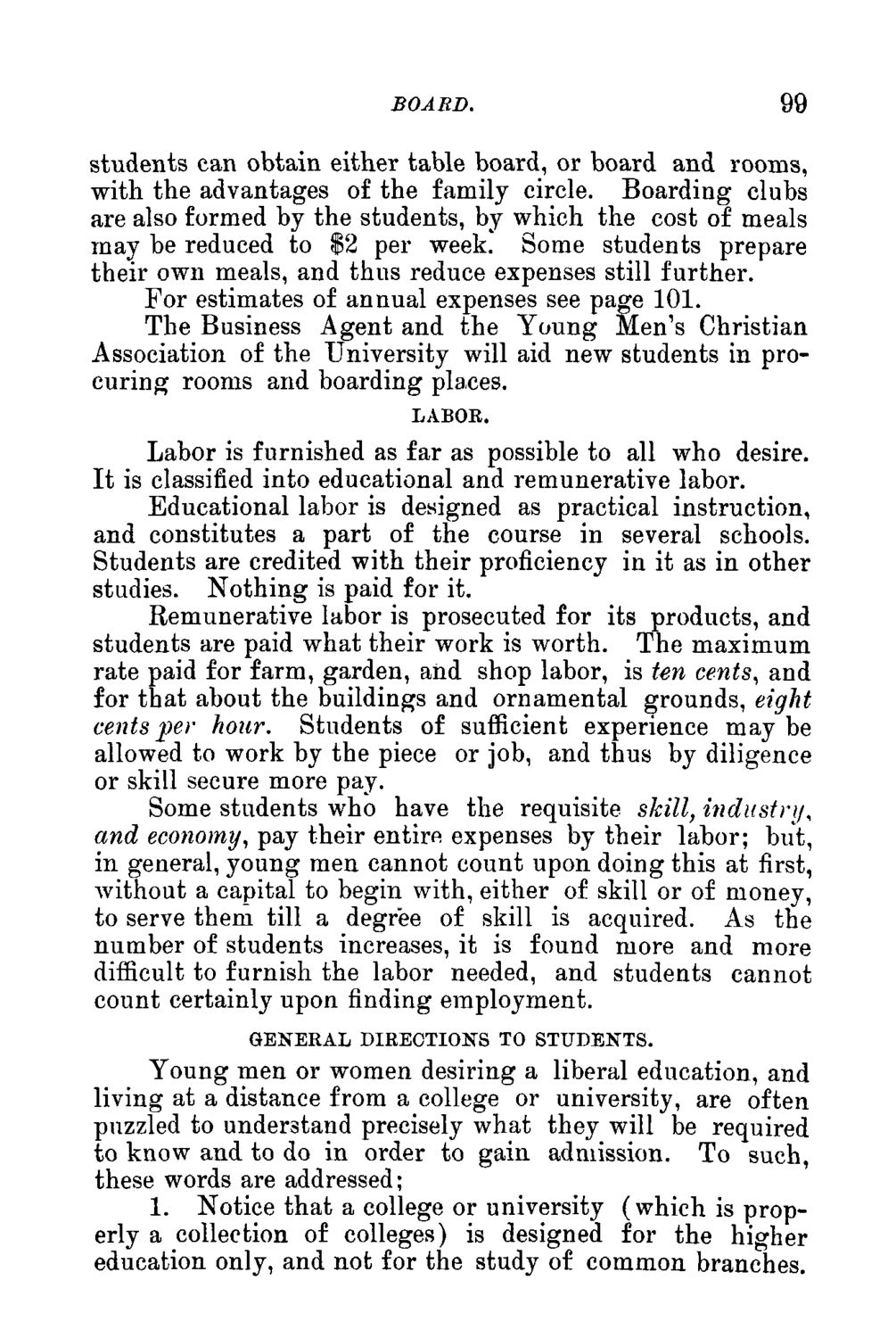| |
| |
Caption: Course Catalog - 1888-1889
This is a reduced-resolution page image for fast online browsing.

EXTRACTED TEXT FROM PAGE:
BOABD. 99 students can obtain either table board, or board and rooms, with the advantages of the family circle. Boarding clubs are also formed by the students, by which the cost of meals may be reduced to $2 per week. Some students prepare their own meals, and thus reduce expenses still further. For estimates of annual expenses see page 101. The Business Agent and the Young Men's Christian Association of the University will aid new students in procuring rooms and boarding places. LABOB. Labor is furnished as far as possible to all who desire. It is classified into educational and remunerative labor. Educational labor is designed as practical instruction, and constitutes a part of the course in several schools. Students are credited with their proficiency in it as in other studies. Nothing is paid for it. Remunerative labor is prosecuted for its products, and students are paid what their work is worth. The maximum rate paid for farm, garden, and shop labor, is ten cents, and for that about the buildings and ornamental grounds, eight cents per hour. Students of sufficient experience may be allowed to work by the piece or job, and thus by diligence or skill secure more pay. Some students who have the requisite skill, industry, and economy, pay their entire expenses by their labor; but, in general, young men cannot count upon doing this at first, without a capital to begin with, either of skill or of money, to serve them till a degree of skill is acquired. As the number of students increases, it is found more and more difficult to furnish the labor needed, and students cannot count certainly upon finding employment. GENERAL DIRECTIONS TO STUDENTS. Young men or women desiring a liberal education, and living at a distance from a college or university, are often puzzled to understand precisely what they will be required to know and to do in order to gain admission. To such, these words are addressed; 1. Notice that a college or university (which is properly a collection of colleges) is designed for the higher education only, and not for the study of common branches.
| |